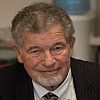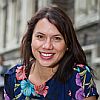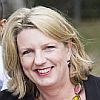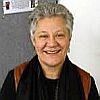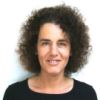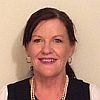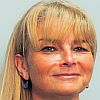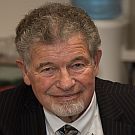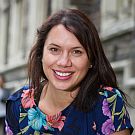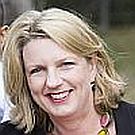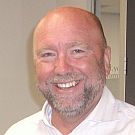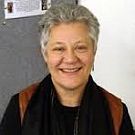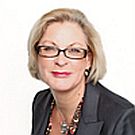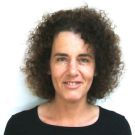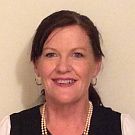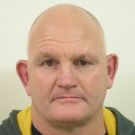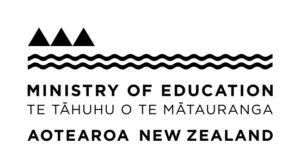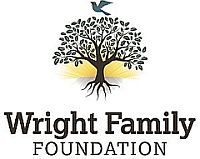Dr Phil A Silva
Founding Director, Dunedin Longitudinal Study
Dr Reremoana (Moana) Theodore
Co-Director of the National Centre for Lifecourse Research (NCLR)
Ass. Prof. Susan Morton
Director, Centre for Longitudinal Research, University of Auckland
Dr John Langley ONZM
Director Outcomes
NorthTec
Ass. Prof. Nicola Atwool
Social Work Programme,
Dept of Sociology, University of Otago
Dr Adrienne Alton-Lee
Chief Education Advisor,
Ministry of Education
Dr Craig Jones
Dep. Sec. Evidence, Data, and Knowledge, Ministry of Education
Dr Annelies Kamp
Head of School of Educational Studies & Leadership, UC
Dr Leon de W Fourie
Chief Executive,
Toi Ohomai Institute of Technology
Dr Sarah Alexander
Chief Executive,
ChildForum
Sue Blair
Director,
Personality Dynamics Ltd
Dr John Boereboom
Director, CEM (NZ) – Centre for Evaluation & Monitoring
Val O’Reilly
IP President,
CDANZ
Jackie Talbot
General Manager, Secondary-Tertiary. Ministry of Education
Dorothy Adams
Interim Chief Executive
Social Investment Agency
BIOS and TOPICS
Dr Phil Silva – Founding Director of the Dunedin Longitudinal Study, now Emeritus Director
http://www.stuff.co.nz/national/81109052/national-portrait-phil-silva-psychology-pioneer
Dr Phil Silva OBE, founded the Dunedin Multidisciplinary Health and Development Study. This is the most comprehensive and productive multidisciplinary longitudinal study that has ever been carried out.
He is the author of more than 400 publications and books and a consultant and advisory to numerous New Zealand Government departments. For a decade he worked with the Thai government to establish a longitudinal study.
Schooling: Arthur Street School then Otago Boys’ High School, Dunedin
Tertiary education, Dunedin Teachers’ College , University of Otago
Diplomas and Degrees: Dip Tchg, MA (Hons,) PhD (Neurological and psychological factors associated with perinatal problems,)
Honorary Fellowships: Elected Fellow of the NZ Psychological Society
Fellow: International Academy for Research into learning Disabilities
Career:
Primary School Teacher
Member: NZ Psychological Service
Research Fellow, University of Otago (funded by the Health Research Council)
Founding Director: Dunedin Multidisciplinary Health and Development Study
Director Emeritus: Dunedin Multidisciplinary Health and Development Research Unit:
Life time appointment by the Health Research Council
University Professorial Appointments: Auckland University of Technology,
Te Wananga o Aotearoa (The Maori University)
Main Honour : Officer of the British Empire, 1994, for services to New Zealand
Topic: Evolution of the University of Otago’s Dunedin Multi-Disciplinary Health and Development Study
This groundbreaking New Zealand study into the lives of 1,000 New Zealanders born 46 years ago in Dunedin has been described as “the broadest and most in-depth study of human beings in the world”.
It demonstrates compellingly how the early years effect the later years and what educators and others need to know and act upon where possible to improve outcomes for young people.
Dr Reremoana (Moana) Theodore (Ngāpuhi, Te Arawa) – Co-Director of the National Centre for Lifecourse Research (NCLR) and an Investigator on the Dunedin Multidisciplinary Health and Development Study.
Dr Reremoana (Moana) Theodore (Ngāpuhi, Te Arawa) is the Co-Director of the National Centre for Lifecourse Research (NCLR) and an Investigator on the Dunedin Multidisciplinary Health and Development Study. She has worked on a number of national and international longitudinal studies. Her research interests include lifecourse research, Māori health and education, child development and the development of chronic disease.
Lifecourse research has already revealed a lot about the wider New Zealand population. Moana’s work leverages off previous lifecourse research and uses longitudinal methods to understand more about Māori education, health and wellbeing over time. She is particularly interested in studying the positive impact that education has on Māori health, social and economic outcomes. Moana is an investigator for the Graduate Longitudinal Study New Zealand, which follows university graduates from throughout New Zealand for 10 years post-graduation. Moana’s focus is on the outcomes of the 600 Māori participants in the study to determine the benefits of university education not only for the graduates themselves (e.g. their careers), but for their whānau, communities and society more broadly.
Moana grew up in South Auckland, but now lives in Dunedin with her husband Rueben and their three children.
Topic: Lifecourse research and graduate outcomes of Maori university students
Lifecourse research has already revealed a lot about the wider New Zealand population. Moana’s work leverages off this and uses longitudinal methods to understand more about the positive impact that education has on Māori health, social and economic outcomes.
She introduces some interesting preliminary findings from the Graduate Longitudinal Study New Zealand, which follows new university graduates from throughout New Zealand for 10 years. Moana’s focus is on the outcomes of the 600 Māori participants in the study to determine the benefits of university education not only for the graduates themselves (e.g. their careers), but for their whānau, communities and society more broadly.
The study suggests that success at university reduces inequalities in labour market outcomes for Maori and Pacific post-graduation. She relates these new findings to previous research with the Dunedin and Christchurch Studies etc.
Associate Professor Susan Morton, Director, Centre for Longitudinal Research, University of Auckland
Associate Professor Susan Morton is the Director of the Centre for Longitudinal Research at the University of Auckland. This cross-faculty centre is the home of the contemporary longitudinal study – Growing Up in New Zealand, which she has been the Principal Investigator of since its inception in 2005. Susan is a Public Health Physician, an expert in life course epidemiology, translational research and econometric modeling of life course outcomes.
Topic: Growing Up in New Zealand – -What makes us who we are?
Perspectives from the Growing Up in New Zealand study about “what shapes children’s early development and how interventions might be targeted at the earliest opportunity to give every New Zealand child the best start in life”.
Dr John Langley – Director Outcomes, NorthTec
Dr JOHN LANGLEY ONZM, MEd (dist), PhD (Cant), Adv Dip Tchg, TTC (Ed of Deaf), MRSNZ is a senior educationalist and public servant whose career bridges the education and social welfare sectors. He has held a number of high level positions in the public and private sectors spanning both management and governance roles including most recently Strategic Lead, Evidence Informed Practice, ORANGA TAMARIKI Ministry for Vulnerable Children.
He earlier completed a secondment as regional director for Te Taitokerau for Child, Youth and Family in the lead up to the launch of the new Ministry. His substantive role was central regional director for Child Youth and Family with responsibility for care and protection, adoption and youth justice matters over a region that covers the lower two-thirds of the North Island.
Prior to that he was the CEO of Cognition Education involved in major national and international education reform and improvement projects across some 12 countries. Before going to Cognition John had been the inaugural dean of education at the University of Auckland, having been one of the leaders in the merger between the University and Auckland College of Education, the principal of Auckland College of Education, the director of the Teacher Registration Board (now the New Zealand Teachers Council), a school principal and teacher. He has also been a registered psychologist.
John has served on a number of boards and governmental advisory committees and working groups. These include the board of the New Zealand Qualifications Authority, Youth Horizons Trust, Starpath and the MultiServe Education Trust. He has been a member of the Ministry of Justice’s Independent Advisory Group on Youth Justice, the minister of education’s advisory group on the future of the teaching profession and a member of the Ministry of Social Development’s Advisory Group on Conduct Problems. He was also a member of the Minister of Education’s Forum on Student Achievement, jointly chairing one of the sub-groups of that Forum.
John has written and spoken widely about education and related social issues, particularly in the youth justice field, has appeared in the written and electronic media on numerous occasions and been responsible for a number of initiatives and innovations in his work, such as Project Early in Christchurch, a home and school intervention that targeted children with moderate to severe conduct problems and their families.
In the New Year Honours in 2010 John was made an Officer of the New Zealand Order of Merit (ONZM) for services to education.
He is married to Tiffany, also a teacher, and has an adult son and daughter. Interests outside of work include cricket, walking, cycling and reading.
Topic: All they need is love? The status and future of vulnerable children and young people in Aotearoa New Zealand. Current report card…C. Comment…We must try harder
Cross-sector collaboration between all who work with children and young people and intervention where necessary will make a positive difference to their life outcomes by early identification of areas of need, coordinated social investment in education and the provision of support services.
Associate Professor Nicola Atwool – Social Work Programme Co-ordinator Department of Sociology, Gender and Social Work, University of Otago
Nicola Atwool is an Associate Professor in the Department of Sociology, Gender and Social Work at the University of Otago, New Zealand, teaching in the social work programme and Children’s Issues Centre post-graduate programme. She returned to academia at the beginning of 2012 following six years as a Principal Advisor in the Office of the Children’s Commissioner. Prior to that she was a Senior Lecturer in social work at the University of Otago and worked with the Children’s Issues Centre.
Nicola came to academia with nearly twenty years experience as a practitioner employed by Child, Youth and Family. Nicola holds professional qualifications in social work and child psychotherapy and completed a PhD in 2008.
Her research interests include the social construction of childhood and adolescence, attachment theory, resilience, the impact of trauma on children and young people, the experience of children in care and making a difference in the lives of children, young people and their families.
Topic: Investing in Early Intervention – Making a difference to children’s life stories
“Hope is necessary. It is a necessary concept. What do you give your kids if you can’t give them hope?” Michele Obama
Research and practice perspectives into the impact of trauma on children and young people, the experience of children in care and making a difference in the lives of children, young people and their families by investing in early intervention.
Dr Leon de W Fourie, Chief Executive, Toi Ohomai Institute of Technology
Dr Leon de W Fourie is the Chief Executive of Toi Ohomai Institute of Technology, home to more than 14 000 aspirational learners. Born from the merger of Bay of Plenty Polytechnic and Waiariki Institute of Technology, the tertiary institution has five main campuses throughout the Bay of Plenty and South Waikato region, and more than 68 delivery sites.
Leon has extensive experience in industry stakeholder mapping and management, as well as leading the implementation of large scale transformation programmes throughout higher education, both here in New Zealand and overseas.
Originally from South Africa, Leon has built a reputation as a values-based leader and is experienced in successfully working in multi-cultural environments with diverse and competing social, political and economic agendas. His passion for providing higher education opportunities for marginalised communities goes back almost 20 years and, as a consequence, has developed a number of institutional strategies to support Māori and Pasifika learners with an end-to-end focus.
He is an internationally recognised researcher (and PBRF rated) with more than 100 publications and is the Vice-President of the Global Business and Technology Association. He holds a PhD in the design and development of training programmes, a masters in performance management and in 2015 received the Woolf Fisher Fellowship scholarship and completed Harvard University’s Senior Executive Educational Leadership programme.
Topic: Preparing our Future Workforce: Change, Uncertainty and Unbundling Learning
The pace of technological change has fundamentally changed our world of work, but it is merely a ripple compared to the tsunami that is looming. The demands on the future workforce is rapidly evolving and continues to reshape the notion of a stable career prospect. More than two thirds of young children entering into primary schools today will work in roles that don’t exist currently.
How do tertiary institutions prepare learners for the world of work in such growing uncertainty where a qualification is no longer the passport to prosperity and rapidly acquired, ongoing skills development is becoming the new labour force currency? This conundrum is both an opportunity and a risk where institutional agility to respond effectively to evolving change and authentic stakeholder connectivity are the key building blocks to ensuring ongoing success.
Dr Craig Jones – Deputy Secretary, Evidence, Data, and Knowledge, Ministry of Education
Craig took up his current Evidence, Data and Knowledge role in May 2016. Originally from Invercargill and a graduate of Otago University, he has been involved in the New South Wales public service for most of his career. All of his roles have had a strong focus on research and evaluation to inform policy decisions with evidence about ‘what works’, for whom and under what conditions. He has held leadership roles in the New South Wales Justice system and in the New South Wales Treasury. Prior to returning to NZ he spent three years with the Centre for Education Statistics and Evaluation within the New South Wales Department of Education.
Craig has a passion for data and how it can be used to inform decision making across all levels of the education system. Craig holds a PhD in forensic psychology from the University of New South Wales.
Topic: How data can be used to inform decision-making across all levels of the education system
Educators are increasingly recognising the importance of measuring not just the attainment of students but the amount of learning progress they make from one time point to the next. Students and their parents need this information to understand how much progress students are making across the curriculum. Teachers need this information to understand where students are at in their learning progression so they know what to do to get students to the next level of their learning journey. School leaders need this information to understand the overall contribution the school is making to achievement and the impact of individual programs and policies. And education agencies need this information to understand what is working, for whom and under what conditions to make good investments that maximise student potential. This presentation will cover the various uses of learning progression and other data to inform decision-making across the education system.
Dr Annelies Kamp – Head of School of Educational Studies & Leadership, University of Canterbury
Dr Annelies Kamp is a sociologist with over 25 years of experience in senior leadership roles and strategic management. Annelies was previously a National Management Advisor for Skill New Zealand and National Manager of the New Zealand Motor Industry Training Organization. She has also held the positions of National Co-ordinator of the Australian Pulp and Paper Industry Skills Development Unit, Research & Policy Manager –Through School to Work with the Brotherhood of St Laurence, and Strategy and Development Manager for Mission Australia.
Annelies has been a Ministerial Board appointment in the adult, community and further education sectors (in both Australia and New Zealand). Most recently, Annelies was Deputy Director at the Higher Education Research Centre and Programme Co-ordinator of the MSc in Education & Training Management (Leadership) at the School of Education Studies at Dublin City University in Ireland. She is currently Associate Professor in Leadership in the College of Education, Health and Human Development at the University of Canterbury.
Topic: Life passages and learning pathways? Rethinking individual and organizational assemblages
In this presentation I engage with longitudinal data to reflect on the concept of life passages and learning pathways. I proceed by offering two cases. The first case is at the level of the individual: the young parent and their child in the context of an educational journey. The second case is at the level of the organization: the ‘un-easy’ notion of collaboration as a social policy agenda, a mechanism to allow young people to ‘do better’. I will read these cases through sociological theory with a view to foregrounding the full range of factors that contribute to the development of passages and pathways before considering the implications of this foregrounding for policy and its implementation.
Dr Sarah Alexander – Chief Executive, ChildForum Early Childhood Network
Dr Sarah Alexander is currently Chief Executive of the ChildForum Early Childhood Network, which has 3 main arms: research, advice, and support (it publishes and disseminates early years research, provides a think tank on early childhood issues, and is an active and very busy member organisation providing information, guidance, networking and support to early childhood services nation-wide).
She has devoted most of her working life to improving the quality of early childhood care and education for children. Over the years, she has worked to inform and inspire, and has also led many different initiatives. Two notable areas that Sarah has raised that have just recently been in the news again concern advocacy for male teachers and gender balance in teaching, and child protection and transparency of handling of complaints in ECE.
Sarah has 5 children and so also has an interest in parent/ family needs and perspectives. For example, as the preservation of the free kindergarten model as a choice of early childhood education is an issue that is concerning many parents, Sarah has been looking into and talking on this.
Her past work experience includes early childhood teaching, teaching teachers (Wellington College of Education), and academia (Human Studies and Ed Psychology departments at Massey University, Palmerston North). She founded and continues to publish the NZ-International Research in ECE Journal, NZ first’s peer-view journal in ECE. Sarah authored one of the initial Best Evidence synthesises (“Quality Teaching: Early Foundations) in the MoE iterative BES programme.
Topic: Children in early childhood care and education – how well does this work for children?
There has been a social and political shift from viewing parents as neglecting their children if they are in paid employment and use childcare to regarding them as harming their child’s future if they don’t. With more than 96% of children in licensed educational care services before they start school we need to consider more closely how this actually affects children. How much participation is too much, too little, too early, too late, is the quality right? As children progress through the school years and become young adults how can we be sure they have had the best start and what else could be done to make this possible?
This session will be part commentary and part audience discussion of evidence from the NZ longitudinal studies and other research, education and social policy, and experience within education.
Sue Blair – Director, Personality Dynamics Ltd
Sue is an expert in the field of psychological type, an international presenter and keynote speaker, as well as a qualified MBTI practitioner and adult educator. She is the author of The Personality Puzzle resources, now used worldwide, and has taught thousands of teachers, parents, students and businesses about self-awareness, communication and leadership.
Sue is the recipient of the APTi 2015 Gordon Lawrence Award. This award recognises an outstanding achievement to the field of education that promotes the constructive use of psychological type.
Topic: “I’m not crazy I’m just not you!” – Discover where personality, neuroscience and learning connect in order to put human faces on the statistics
Dr Adrienne Alton-Lee – Chief Education Advisor, Ministry of Education
Dr Adrienne Alton-Lee is the Chief Education Advisor who leads the New Zealand Ministry of Education’s Iterative Best Evidence Synthesis (BES) Programme/Hei Kete Raukura. www.educationcounts.govt.nz/goto/BES
She was formerly a primary teacher, classroom researcher, Professor of Teacher Education and an Associate Editor of Teaching and Teacher Education. She has published in leading educational journals including the Harvard Educational Review, the Cambridge Journal of Education, the Elementary School Journal, the International Journal of Inclusive Education and Review of Research in Education. Dr Alton-Lee is the author of the Ministry of Education’s first best evidence synthesis: Quality teaching for diverse students in schooling best evidence synthesis iteration and lead author of the BES Exemplars featuring highly effective educational approaches.
Dr Alton-Lee was elected unanimously as a Fellow of the International Academy of Education in 2006.
Recently Dr Alton-Lee has been working as a learner with a range of partners to use the evidence of what makes a bigger difference in education to develop productive learning communities.
Topic: Evidence in action: Productive collaboration for educational improvement
Val O’Reilly – IP President CDANZ
Val O’Reilly champions lifelong learning. She completed her first degree (BA) in 1980 at the University of Otago, then in 2009 a Masters in Career Development (with Distinction) at AUT University, and in 2017 she will complete her PhD through the University of Queensland, focussing on professional standards and career development in the school context.
Val believes curiosity is a strong and wonderful motivator for learning in your field of interest, and that all the past and present systems of influence in our lives contribute to our career story.
Her career story includes: Childhood on an orchard in Central Otago, education in Dunedin, secondary school English teaching throughout NZ, secondary school career practice in Auckland, author of a refereed journal article and international conference presentation on: “The role of school websites in career development practice”, author of a book chapter in “Ideas for Career Practitioners: Celebrating excellence in career practice”, private practice as Director of Life-Story (education and career counselling for life design), career counselling at the University of Auckland, career counselling for refugee students in Auckland schools, member of the Auckland Skills Steering Group Youth Employability Programme (YEP), member of the NZ country team to the International Centre for Career Development and Public Policy (ICCDPP) 2015 US Symposium, NZ Country Team Leader for the ICCDPP 2017 South Korea Symposium, and President of the Career Development Association of New Zealand (CDANZ).
Topic: Everyone has a career. Why should we leave career development- especially for our young people- entirely to chance?
View Programme – 11.30am Plenary Panel session on Thursday 24/8
Dr John Boereboom – Director, Centre for Educational Evaluation and Monitoring (CEM)
Topic: What New Zealand children know when they start school in New Zealand
There is a wide range of assessment tools used by schools to assess children at school entry in New Zealand. The lack of consistency of uptake and reporting of results leads to sporadic national data. This highlights a need for a national standardised assessment which can be used as a reliable baseline of what New Zealand children know when they start school and how they progress in their first year. The Performance Indicators in Primary Schools (PIPS) assessment is a valid, reliable and internationally respected school entry assessment. The Centre for Evaluation and Monitoring at the University of Canterbury used PIPS to collect data on 3916 students’ early literacy and numeracy skills when they started school and followed up on their progress 12 months later. This paints a comprehensive national picture of what New Zealand children know when they start school. The data is useful for the early identification of special learning needs and can be used to gauge the effectiveness of year 1 programmes.
Jackie Talbot – General Manager, Secondary-Tertiary Group, Ministry of Education
Jackie is currently the General Manager of the Ministry of Education’s Secondary-Tertiary Group. This group leads the design and implementation of programmes to increase student achievement, and improve the retention and progression of young people into further learning, training or work. The group’s responsibilities include oversight of areas such as NCEA and Vocational Pathways.
Before her current role, Jackie was the Manager for Strategy, Performance and Governance at the Department of Prime Minister and Cabinet (DPMC) and Workforce Director at the Children’s Action Plan. The role at DPMC involved leading a work programme to support DPMC to achieve its strategic priorities and manage risk by ensuring it has sound strategy, effective governance and efficient organisational systems and processes. At the Children’s Action Plan, Jackie was responsible for the leadership and design of a transformational change across country’s children’s workforce to ensure the intent of the Children’s Action Plan and the Vulnerable Children’s Act (2014) is met.
From 2011 to 2013, Jackie was the National Manager at the Ministry of Education for Learning and Change Networks. This involved establishing 52 Learning and Change Networks, totalling 480 schools and communities, which required a programme of leadership and change for schools and communities to move from competition to collaboration.
Jackie was born and raised, and currently lives, in Hamilton. From the University of Waikato, Jackie has a Masters of Educational Leadership and Administration (2014) and degrees in Educational Leadership, Primary Teaching and Psychology (1984 – 1998). Jackie has two adult daughters and a whangai Tongan son. Outside of work, likes to train for and run half marathons.
Topic: Helping young people manage their learning and career pathways
The Government’s vision is for a student-focused education system, underpinned by high quality information and strong links to the world of work. Young people need to be able to plan and manage their learning and career pathways, and are increasingly undertaking learning in mixed secondary-tertiary settings. Strengthening links between education and employment to support pathways is more important than ever.
Dorothy Adams, Interim Chief Executive, Social Investment Agency
Dorothy transitioned the Social Investment Unit, which she has headed since it was established in July 2015, into the newly-created Social Investment Agency. She was previously GM, Insights MSD at the Ministry of Social Development for four years, transforming what was the Ministry’s Centre for Social Research & Evaluation into a leading data, analytics and evidence hub.
Topic: Looking through social investment-tinted glasses
Social Investment is about providing the right services at the right time for New Zealanders in need. A child with problems at school is more likely to have concerns in other areas, such as health or welfare. In education, this means having better information about our children’s progress and challenges that can be analysed and linked with other social sector information.
.
Roland Hermans – Coordinator Schools, National Prevention Centre, Police National Head Quarters
Roland served as a uniformed police officer for 27 years, mostly doing community policing, including 14 years working directly with schools. Roly’s job is to support the activities of over one hundred specially-trained School Community Officers who partner with schools to prevent harm so that students can achieve their potential.
Ross Lienert – Manager Youth for the National Prevention Centre, Police National Headquarters
Ross is the Manager Youth for the National Prevention Centre at Police National Headquarters, where he holds the rank of Inspector. Ross has been a member of Police for 30 years, specialising in Family Violence and Youth Aid for the majority of that time, and having previously served in Auckland, Nelson and Canterbury. Ross is heavily involved in the service and practice design of Oranga Tamariki, working alongside other agencies to ensure all vulnerable children are provided with opportunities to be the best that they can be.


